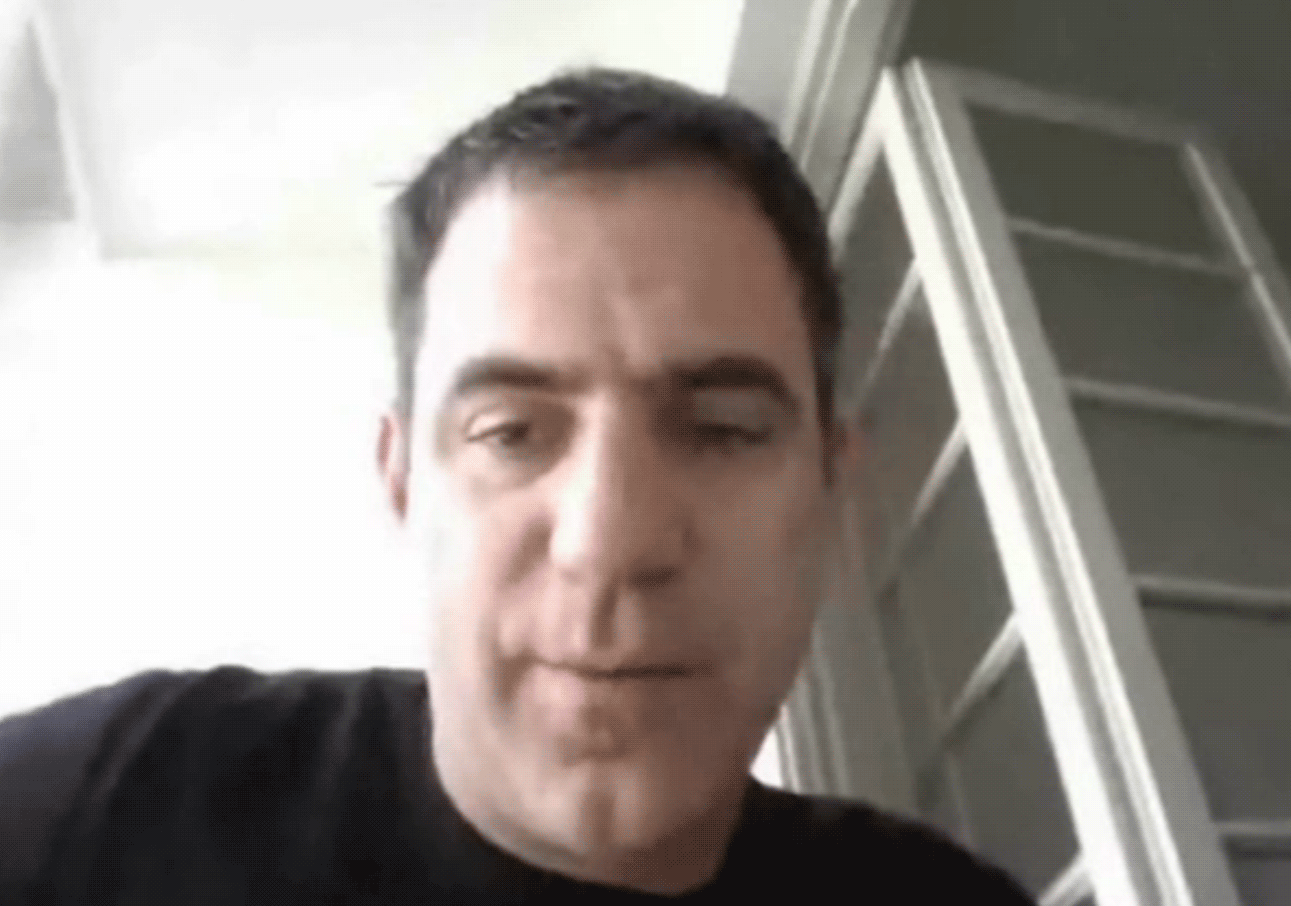Tom Crowther on the Beijing punks
Punk rocker with black eye after a fist fight
In the spring of 2010, anthropologist Tom Crowther spent four months in Beijing, conducting an anthropological fieldwork among local punks which included heavy drinking, hanging out with cops, playing lots of guitar and always exploring the city and its punks. Last week, I met with Tom for a beer and a chat about the Beijing punk scene at his favorite local hangout spot in surprisingly sunny Copenhagen.
How did you end up going to Beijing and doing fieldwork there?
Well, at the time I was working at this bar here, and my buddy Nikolaj who owns the place had another friend who lives in Beijing called Jakob. Nikolaj and I were pretty tight and he was talking about going down because there were a lot of good punk shows going on, and I was really interested in that. So that gave me the idea to pursue that line, and I contacted Jakob and ended up staying with him. Before I went, I had this deep-seated idea of what it was going to be like. I had this idea that these punk kids were very much going to be these political warriors fighting for freedom and stuff like that. And it wasn’t like that at all.What was that about?
I think I had this idea of the post Tiananmen Square generation because that seems to fit really neatly in a little analytical box. The thing is that all these kids knew all about Tiananmen Square, but it wasn’t a subject that was as important as I would have thought. The interesting point is that I think Tiananmen Square leaves that psychological scar on external perspectives on China and the Party and their rule. And it gets compounded by Tibetan issues and human rights abuses and all the homes that were demolished during the Olympics. They have a terrible track record in human rights, there’s no denying it, but when you’re in Beijing, it’s worlds away from this external point of view.You played with a punk band during your fieldwork. How did that happen?
I was actually extremely lucky in that the second night I was there, I was in a bar in an inner city, Western area with big malls. I went for a few beers there, and these punk rock kids came in, and I was like, ”holy shit, here are some Chinese punks”. My buddy told me to go talk to them, but I didn’t know how to do it. I went to the bar to buy a round of beers for these kids to take them over, and the bartender put the beers on the table, but he was too scared to bring them over. So I had to take them over myself, went back to my table, and eventually they invited me over. It was just pure luck that they happened to be in the hierarchy of the scene. One of them put on all the shows and the other one was kind of the queen of the scene, the most hardcore girl. And I’ve loved punk since I was wee and collected punk records and played in bands and things like that, so it was just a natural progression that we would talk about music non stop, and word went around that I was this new guy in town that wanted to play in a band. And I just got a call from some kid that didn’t speak a word of English, met him at a KFC and ended up playing with those guys. We were really bad, but it was a great time.What was the craziest thing that happened while you were out there?
I was at one skinhead show where a few members of the audience, Chinese guys, started to Sieg Heil, and that bummed me out. It took me a while to get over that, but it turned out the guy didn’t know what it was, he just thought it was something skinheads do.There must have been a lot of partying and drinking.
Yeah, I was drinking nonstop. Many kids didn’t work, and what they did was mostly drink. And if I wanted to hang out with them and talk, I had to drink with them. The first night was crazy because I ended up drinking with these guys and they were like, ”yeah, you should come with us”. So I was in a cab with no idea where we were going, and the cab just dropped us outside of what looked like a really expensive brothel. And it wasn’t far off actually, it was a bath house. So I ended up at this health spa with these punk guys, ass drunk, jumping naked into hot tubs and stuff, running around like lunatics and falling asleep in big leather chairs. That was pretty crazy. And I was sick for a week after.You dealt with a lot of police during your fieldwork. What was that like?
And a lot of cops told me that, ”yeah, we’d love to start a band, maybe we could do that”.
I met a lot of police while I was there because my guitar got stolen. The majority of cops, they all just do bloody traffic control. But going around with the cops, that was pretty crazy. Going to big police stations in Beijing and seeing inside. It was a glimpse behind the curtain, you know. They’d drive us around to where we’d been when I got my guitar stolen, and they’d show us all the CCTV footage. They could track our movements from the entire night all over the city. And a lot of cops told me that, ”yeah, we’d love to start a band, maybe we could do that”. They were really excited about it because they didn’t know that that was out there. The majority of people, my informants included, they do and say whatever they like. There are no resources to clamp down on such a tiny group of kids who have no chance of making it to the mainstream.
Is there a mainstream for punk?
No, no. There are some rock and roll superstars from the 80s and 90s, but right now the mainstream thing that people are going berserk for is electronic dance music. You can go to clubs and they’re packed with thousands and thousands of kids going crazy. And hip hop, they love hip hop. Bizarrely, the Party got in early and started pumping pro China lyrics into hip hop, so the biggest hip hop acts are almost a tourist guide to Beijing, you know. Rapping about ”Beijing is so great, we got the Great Wall and the Forbidden City and ancestors and na, na, na, proud to be Chinese”, rapping away. So Rock! zine
So Rock! zine
I remember you talked about some of the bands having problems getting visas to go on tour and that sort of thing.
Yeah, that’s true. But then again, I don’t think it’s that hard. The reason Misandao, for example, had trouble getting visas was because two of them had criminal records. But my buddies in a band called Gum Bleed, I played a show with them at Bakken here (bar in Copenhagen) when they were on tour, and they had no problems. They’d done two European tours. Most kids are not political in terms of being overtly rebellious against the government. There’s sort of a hypernationalism going on in the punk scene actually. So they’re very proud of being Chinese and very proud of who they are. They’re very much the privileged kind of upper middle class. And they have money. I mean, if they didn’t have money, they wouldn’t be able to have that lifestyle. A lot of things that you need to be a punk rocker aren’t cheap. The right pair of boots, the right jacket, cost a lot of money. That’s more money than some people earn in six months just for one of these things.So is it all pretty much sponsored by their parents?
"oh, I’ll cut my hair and become and adult"
The skinheads have jobs because it’s much easier to be a skinhead and put on regular clothes and have a 9 to 5. And a lot of the other punks are punk rock while they’re studying, and when they finish studying and get to an age around 22 or 23, then it’s over. They shave off the mohawk and cover up the tattoos and move into the job market. I mean, the drummer I played with was actually just about to complete his PhD in some sort of aerospace engineering. And he had a dyed red fringe and all this kind of stuff. I asked him what he was going to do after this ends, and he said, ”oh, I’ll cut my hair and become and adult”. So I think it’s a luxury thing to be young and rebellious. It’s a luxury that the overwhelming majority of kids don’t have. And that’s another reason why the punk scene keeps getting smaller and smaller every year. I mean, it’s maybe 60 hardcore kids. 60 kids in a city of millions.
You don’t think these kids think of it as a lifestyle that they’ll have a hard time giving up?
Of course there are individual characters that are older, but even the most hardcore kids, if you ask them how long they think they can continue this persona, they’ll say till around they’re 25. They’re very aware of their filial expectations. They’re aware of their parents and what their parents want them to do. There’s a lot of pressure to marry the right girl which is obviously hard to do if you’re tattooed and mohawked, you know.But you can’t really take back a tattoo. That’s pretty much going to stay there.
That’s true, and some kids really went far. There would be some that would take it as far as they possibly could as a lifetime thing, but they were the ones who could afford to because their parents were wealthy enough. They wouldn’t have to worry so much because their parents owned restaurants or had businesses or worked in the government.That skinhead thing that some of the bands are doing, where does that come from?
Politically, there’s a big move right now to a sort of right wing stance. Young people are very pro China and anti foreigner.
I think it comes from a very savvy awareness of pop culture. A lot of these kids are very good on the Internet. They seek things up and they find things. Say if a kid sees a movie, like Romper Stomper or something like that, a classic skinhead film, they love those. There are a lot of things that they love. Football and that sort of hyper-masculine, fighting sort of thing. Politically, there’s a big move right now to a sort of right wing stance. Young people are very pro China and anti foreigner. And a lot of the punk kids I spoke to were very aware that there were a lot of foreigners coming in. A lot of the Western media does trash China, for good or bad, but there’s a very critical eye on China. So there is a sort of distrust in foreign things. In the last year or so, there’s a been a trend of these skinheads going out beating up Westerners dating Chinese girls and stuff like that, so I think that’s kind of their political thing, and they are very pro China, very pro Party.
So I guess it’s a question of how much is ideology or conviction and how much is just for show.
Yeah. As far as the right wing, I think it is very real. They are very much into that sort of thing. They are skinheads and that’s what they do. It’s very difficult to judge the depth of a subculture. Just because they sort of wear this costume doesn’t mean it lacks depth. I think it takes a lot of guts to be that different. People stare at you in China, you know. Especially these sort of poodle rockers who have these huge Guns N Roses sort of manes. They get in a lot of trouble actually. They get into fights and things on the train because they look different. I don’t think the skinheads get it so much, but I know that people look at them like they’re a bit weird and strange. I had a friend who had tattoos on her tits and her knuckles and stuff, and you could go anywhere with her and people would be shocked. So it’s a brave move actually.I’ve noticed that the popular venue D-22 is run by a foreign guy. So the punks get inspired by pop culture and England and all that and then they have these foreign guys that come and run their place. How much of it is just copying and going with what other people are doing?
It is a lot of copying. I don’t think the punk scene you could call particularly creative in terms of pushing new boundaries of the genre. I mean, there are bands that are creative and that do a lot of interesting things actually, but I wouldn’t put most of the punk bands in that bracket. Most of them, to be fair, are awful. And even the some of the bands that are signed are still pretty bad. As far as D-22, most Chinese underground bands, they don’t play there. D-22 is just a place run by a Western guy.Where do the real Chinese punks hang out then?
they usually hang out in the places that serve Muslim food because it’s barbecue stuff
There’s a place called No Name which is run by a middle aged woman who loves these punk kids. She lets them put on shows for virtually nothing, and that’s where the punk shows happen. A bar is sort of a Western idea, so a lot of them hang out in restaurants. And they usually hang out in the places that serve Muslim food because it’s barbecue stuff. There are mini-packs of punks as well that hang out in their own little places. So they play shows in these little venues in the hutongs which are almost bars, almost restaurants.
You were in Beijing in 2010, after the Olympics, and in your thesis, you talk about the city and how the architecture influences people.
Yeah. In reality, I found this urban space that the punks existed in extremely interesting, often more so than the punk subculture which could become monotonous.What was your experience of Beijing then? How would you describe it?
It’s a city which is always being built. When a building starts getting old, it gets knocked down. And I think that’s sad because a lot of hutongs that have been there thousands of years are being demolished to make way for big skyscrapers. It’s very much a skyscraper city. But what’s really interesting, and it took me a while to work out, is that a lot of these new building are completely empty. There’s nothing in them.How does that make sense?
They’re symbolic of power. China is very proud of dragging people out of poverty. And there is certainly a large proportion of people whose lifestyles have changed dramatically because of consumerism and improvements in living standards. These big skyscrapers, I think they’re a statement that says, ”we are a global city, we’re an up and coming civilization”. People are amazingly proud of it. It drags people forward, and that’s the genius behind it. The fact that it’s never finished means that people are always going to be dragged forward. It will never stop. I think, particularly in terms of architecture, it helps the elite class to publicly narrate their ambitions. It’s a visible projection of national ambition, actually. Even if they’re not there yet, they want to be there, and if they build it, they’re already halfway there. You just have to wait for the population to catch up.How does that affect the punk kids?
Within the last 20 years, this movement has just gone really fast. This whole new generation of kids that come up with the wealth, the things they can buy, the identities they can be, you know, they can get into hip hop, all sorts of musical genres. They can buy whatever the hell they like, whether it’s real or it’s fake, so they can be what they want.But it’s still not conflicting with the national identity.
It is a progressive identity
No, I think the national identity is one of progression, so as long as they consume these progressive kind of things, then it doesn’t conflict. It actually supports it. And I think that’s one thing about punk. It is a progressive identity. It’s the same with the internet. So even if they became a political threat, there’s only so much the Party can do, because the Party can’t be seen to be regressive anymore. They have to be always seen as progressive. They can’t stop things. They have to keep pushing things forward.







